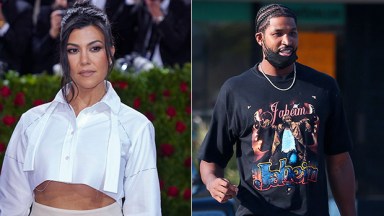GREENVILLE, N.C. — Dwight Flanagan can nonetheless see the faces. He has long gone again thru timeless recreation systems and racked his mind to position the faces with the names.
He merely can’t do it.
It’s been just about 53 years since Flanagan walked to midfield for the coin toss as considered one of East Carolina’s captains that sun-baked Saturday afternoon. He shook arms with the Marshall captains, listened to the pinnacle referee’s directions and returned to the house sideline.
“For 60 minutes, you go against those guys, knocking heads, doing everything you can to beat them, and we’re fortunate enough to win a tough, hard-fought game,” mentioned Flanagan, his tonality solemn however stable.
“And then you hear the awful news later that night, news that eats at you to this day, all these years later, that those guys get on an airplane and never make it back.”
Thru that tragedy on Nov. 14, 1970, East Carolina and Marshall will ceaselessly be related. All 75 family onboard a chartered Southern Airlines DC-9 sporting Marshall avid gamers, coaches and fanatics have been killed when the aircraft coming back from a 17-14 loss to ECU slammed right into a hillside state Tri-Condition Airport in Kenova, West Virginia. It remainder the deadliest sports-related breeze catastrophe in U.S. historical past.
“I was 6 when the plane crashed, just a couple miles from my home, and my cousins were first responders,” Marshall president Brad D. Smith mentioned. “I remember the mountain glowing red and the sky kind of lighting up at night. And then, of course, hearing all the sirens and everything. It’s just incredible how personal the Marshall story is to everybody.”
On Saturday, the bond that endures between the colleges evoked deeply rooted feelings and various tears as 38,211 family amassed at Dowdy-Ficklen Stadium. Nearest a climate prolong of an occasion and 41 mins at halftime, Marshall scored 21 unanswered issues within the fourth quarter for a 31-13 win.
However the ultimate rating used to be nearly an afterthought. Greater than 30 East Carolina avid gamers from the 1970 recreation returned to campus to pay tribute to their fallen combatants from greater than a part century in the past. (A indistinguishable rite were deliberate for the autumn of 2020, 50 years nearest the strike, however used to be canceled on account of COVID-19.) A few of the ones avid gamers hadn’t been again in many years.
“I’m still not over it, not sure I ever will get over it,” mentioned George Whitley, a senior co-captain and defensive again at the 1970 ECU crew. “I think I’ve been back here for a game maybe one other time, but I wasn’t going to miss this one.”
At the Marshall aspect, it used to be the primary generation Purple Dawson were again because the 1970 recreation. Dawson, the Thundering Herd’s defensive coordinator, didn’t get at the crew aircraft that night time and rather drove to Ferrum School in Virginia for a recruiting discuss with along side freshman schoolteacher Gail Parker, who had flown i’m sick with the crew however traded seats with workman schoolteacher “Deke” Brackett, who had pushed to Greenville with Dawson.
Simply because the mist began to return i’m sick Saturday, the 80-year-old Dawson gingerly walked out onto the farmland all the way through a timeout within the first quarter. The avid gamers from East Carolina’s 1970 crew offered him with a recreation ball they’d all signed. Dawson pointed at each and every of them, nodded and mouthed the phrases “Thank you.”
Dawson, who nonetheless lives in Huntington, West Virginia, used to be a central determine within the 2006 movie “We Are Marshall.” He and his spouse, Sharon, drove to Greenville for the sport closing weekend nearest visiting the South Carolina coast. Dawson used to be best 28 when the strike befell, now not a quantity used than most of the avid gamers he coached. For greater than 30 years, he mentioned, he used to be not able to departure the horror of all of it and necessarily went right into a shell.
“Hell, I didn’t want to see anybody or talk to anybody, let alone talk about that game or remember anything about it. I just couldn’t,” mentioned Dawson, who remains to be improving from a stroke suffered 3 years in the past. “I think I went to 27 funerals. You can’t imagine that kind of pain, seeing all those families who lost the people they love the most.
“It used to be dehydrated coming again right here. I didn’t know if I ever may.”
Dawson, wearing his green and white Marshall pullover, played over and over in his mind what it was going to feel like walking out on that field again. Some of the anguish he had purposely locked away came creeping back.
But not all of it. He maintained his razor-sharp wit throughout the weekend. Told that he was a lot better-looking than the actor, Matthew Fox, who played him in the movie, Dawson smiled wryly and said, “Now I do know you’re bulls—ting me.”
Just before kickoff Saturday, Dawson stood adjacent to the end zone with Sharon at his side and gazed 100 yards in the other direction toward the visiting locker room. Just outside the stadium on that side is a memorial plaque that was installed in 2006 to honor the 1970 Thundering Herd. The plaque reads in part: “Their gliding to eternity ceaselessly modified the lives of those that dearly beloved them. … They shall live to tell the tale within the hearts in their households and buddies ceaselessly.”
The Marshall administration invited Red and Sharon Dawson to fly to the game with the team last weekend.
“However he mentioned negative, now not this recreation and now not right here,” Sharon said.
As it turned out, Marshall’s plane had trouble landing at the Greenville airport on Friday before the game because of storms in the area. The plane circled the airport and was diverted to Richmond, Virginia, to refuel before returning to Greenville.
Dawson did stay at the hotel with the team, and when he and Sharon retired to the room that evening, they flipped on the television, and “We Are Marshall” was playing.
“We keep watch it each and every yr now,” Sharon said. “Purple most often makes it to the section the place the display screen is going twilight [when the plane goes down] sooner than he begins crying.”
With the long weather delay, most of Saturday’s crowd had left by the time the second half resumed. Red and Sharon held out as long as they could, and Marshall coach Charles Huff reminded his players what this game means to so many.
“We talked to the crew sooner than the sport that the best way you honor somebody is by way of the way you do one thing,” Huff said.
Saturday’s win was Marshall’s first in Greenville in eight tries.
KEITH MOREHOUSE, WHOSE father, Gene, was killed in the crash, was also presented with a game ball during the ceremony. Gene was the radio voice for the Thundering Herd and the team’s sports information director in 1970. His son has followed in his footsteps, as Keith is the longtime sports director at WSAZ-TV, the NBC affiliate in Huntington.
It was only the sixth ECU-Marshall game in Greenville since the crash in 1970, and Morehouse had attended a few of the previous matchups. On one of those trips, he was able to go up into the old visiting team broadcast booth.
“The cubicles have all been redone with the stadium enlargement, however they took me to the only Dad would were in moment calling his closing recreation,” Morehouse said. “The footprint of the stadium is equal to it used to be in 1970, in order you advance onto the farmland, ideas wash over you.”
A few years ago, some of the ECU players on the 1970 team sent Morehouse the original film from the game, and his colleagues at the television station spliced the audio of his father’s radio call with the game film.
Morehouse won an Edward R. Murrow regional award for best news documentary in 2020 with his report “A Alternate of Seasons: Fifty Novembers In the past.” He interviewed some of the ECU players for the piece and was struck by how it had impacted them.
“I supposition we’ve all mourned in numerous tactics,” said Morehouse, whose wife, Debbie, lost both of her parents in the crash.
Her father, Ray Hagley, was the team doctor and only 34 at the time of his death. Her mother, Shirley, was flying with her husband for the first time, traveling without their six children. Many of the fans on the plane were among the most prominent leaders in the community. There were 18 children who became orphans after losing both parents on the doomed flight.
Morehouse, 62, still has a picture from that game that shows part of the stands.
“You’ll pick one of the crucial folk contributors, and you’ll see my spouse’s father in one of the most photos,” he said.
Dawson, who never returned to coaching after the 1972 preseason, has blocked out much of what happened 53 years ago. Some of those memories he doesn’t want to recall, and others he’s relieved that he can’t recall because of the effects of his stroke.
What he does remember from that game 53 years ago, similar to the ECU players, are the faces of the Marshall players as they made their way off the field. He remembers some of the fans mingling around the locker room. And, yes, he remembers being peeved over the loss.
“We must have gained the rattling recreation,” Dawson said grimacing. “That’s what everyone used to be pondering.”
But a football game was the last thing on Dawson’s mind hours later as he and Parker hopped back in the car after visiting a prospect. They were listening to the car radio when they heard the news.
“Injury, overall trauma,” Dawson said. “I don’t know the place we have been and even what generation it used to be. I simply know we opposed the auto and sat there and stared at each and every alternative. Neither considered one of us may say a pledge. We simply stared. I couldn’t inform you how lengthy. It appeared like ceaselessly.”
Back in Greenville, ECU coach Mike McGee came barreling through the dormitory late that night yelling for everybody to gather in the student center for an impromptu meeting.
“A quantity people have been downtown looking for a lager like most faculty youngsters. We have been celebrating. We didn’t win many video games that season,” said Richard Peeler, an all-conference defensive tackle for the team. “When Schoolteacher McGee in the end were given us all in combination that night time, we was at items.”
Rusty Scales remembers being summoned by a graduate assistant, and for him, the news hit especially hard. Scales, a fullback on that ECU team, played high school football in New Jersey against Marshall quarterback Teddy Shoebridge and running back Art Harris. Scales played at Passaic Valley High, Harris at Passaic High and Shoebridge at Lyndhurst High.
“I stood over there with Teddy speaking for a couple of mins, speaking about coaches and family we knew in Unused Jersey, one of the crucial highschool groups,” Scales recalled. “We talked lengthy enough quantity that our coaches have been calling us off the farmland to the warehouse rooms.
“And just like that, you hear he’s gone, all of them. You just couldn’t believe it.”
The ECU crew held a memorial carrier early the nearest morning on the Wright Auditorium on campus. The Pirates’ season used to be over, however Marshall had yet another recreation excess in opposition to Ohio College that weekend.
McGee, who died in 2019, used to be in his best season at East Carolina as schoolteacher sooner than shifting directly to Duke. He known as Peeler into his place of work Monday morning nearest the strike to look what his ideas have been about ECU doubtlessly filling in for Marshall in its ultimate scheduled recreation so that you can honor the avid gamers and coaches who misplaced their lives.
“We were going to wear their uniforms and any revenue we made would have gone to Marshall, but the NCAA wouldn’t let us do it,” Peeler mentioned. “We were just looking for ways to do anything we could to help.”
AS SATURDAY’S GAME approached, the avid gamers and coaches who performed in that 1970 recreation have been hardly ever the one ones who discovered their minds racing — and their hearts aching.
Shoebridge’s used brother, Tom Shoebridge, needed to relax a number of instances to bundle himself when recalling his ultimate phone dialog together with his brother. Tom, who spends maximum of his generation now on the Unused Jersey shore, used to be not able to form the travel to Greenville, however he attached a couple of years in the past with one of the crucial ECU avid gamers.
“Give those guys a big hug. We don’t shake hands in Jersey. We hug,” mentioned Shoebridge, who retired in 2019 nearest greater than 40 years of training observe and soccer at his highschool alma mater, the similar faculty his overdue brother Teddy starred at in each soccer and baseball.
On Sundays when Teddy used to be at Marshall, he would name house store. Tom mentioned he, more youthful brother Terry and their folks would cross the telephone round to speak to him.
“It was that or writing letters. We couldn’t talk long, either, because those collect calls were expensive,” Tom mentioned. “But I’ll always remember him asking me about one of our biggest wins in high school, wanting to know all about our game and how excited he was for me. It was never about him.”
His tonality cracking, Tom added, “I didn’t know that would be the last time I would talk to him.”
Each time Tom hears that Marshall goes to be enjoying East Carolina, he mentioned it brings him again to the while of Nov. 14, 1970.
“It’s not a good place to be sometimes,” Tom mentioned. “I think about many, many things. As a coach, I think about the kids on that plane. They’d just lost a tough game. As a brother, I think about Teddy and what he was thinking before he died.”
Senior defensive finish Owen Porter is Marshall’s defensive chief and one of the most supremacy avid gamers within the Solar Belt Convention. Saturday’s recreation used to be his first travel to Greenville. His grandparents, Don and Joyce Hampton, lived not up to a mile from the strike web site in Kenova. From the generation he used to be a negligible boy, he’d heard tales about that fateful night time and the way the public rallied to help each and every alternative.
“They lived in a little white brick house right there at the time,” Porter mentioned. “When the plane hit the mountain, it shook the walls, knocked pictures off the walls, shook stuff in bookcases, and there was broken glass and stuff on the floor.
“Marshall is who I’m. It’s a part of me and my folk … at all times.”
Julia Keller, a Pulitzer Prize-winning author, was born and raised in Huntington. Her father was a math professor at Marshall and kept statistics at the football and basketball games. Keller would tag along as a young girl.
“I believed I used to be the queen of the sector getting to sit down there on press row and within the press field, and oh my gosh, that I knew Gene Morehouse,” Keller remembered. “My father and I shared a love of sports activities, and I do know that strike affected him so profoundly as a result of he knew a quantity of the ones avid gamers and had them at school, and he knew the townspeople who have been killed too.”
Soon after taking a job with the Chicago Tribune, Keller talked her editors into letting her write a story about the crash in 1999. She spent more than a month working on it, and one of the things that sticks with her was a visit she had with Teddy Shoebridge’s mother, who was dying of pancreatic cancer.
“I used to be so moved and touched after I went there. She had now not been out of her mattress for months,” said Keller, who was 13 when the plane crashed. “She got here out into the lounge, and we sat across the desk and mentioned Ted. She necessarily were given herself up out of what used to be her demise mattress to speak about her cherished son.”
Shoebridge’s mother died a few weeks after Keller’s story was published. When Keller realized that Marshall was playing at East Carolina this season, she immediately thought of that rainy, foggy night as a frightened 13-year-old and the unspeakable grief that consumed her hometown.
“It does trade, the distress,” Keller said. “It is going from an overly, very clever edge, however I wouldn’t say it ever lessens.”
Earl Taylor was a member of the drumline in the ECU marching band in 1970. His wife, Pam, who joined the flag corps the following year, was also at the game in the stands. Taylor went on to earn three degrees at ECU, and to this day, he struggles to wrap his brain around the fact that he watched those players exit the field, but they never made it home.
“I feel everyone on our campus used to be pondering the similar factor, ‘We simply performed that crew, and now they’re long gone,'” Taylor said. “We gained the sport, however they misplaced their lives.
“It just couldn’t be.”
When the closing of the Marshall avid gamers got here straggling out of the warehouse room towards the crew buses Saturday, the mist had almost about opposed. Caleb McMillan, a young receiver from Orlando, Florida, walked outdoor the gate together with his headphones sitting atop his head. He grew to become to his left and used to be dealing with the plaque memorializing his Herd soccer brethren from greater than 50 years in the past. He took an image together with his mobile phone and gently positioned his hand at the plaque.
“We won’t forget,” he mentioned softly.
It used to be McMillan’s 75-yard landing reception — every other tribute of types to the “75” — that grew to become the sport in Marshall’s bias.
However in this wet night time, it used to be negligible greater than a footnote.







